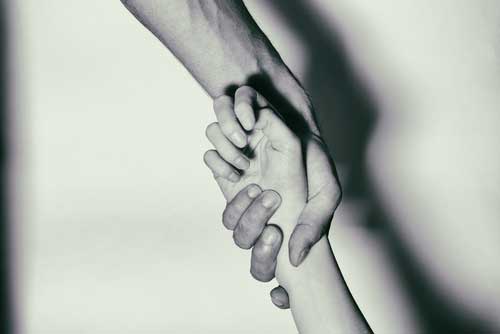Do Addicts Actually Need Treatment?
Unfortunately, even in 2020, people have a hard time drawing a connection between mental health treatment, physical healthcare, and addiction. While it’s clear that addiction will cause physical health problems, and that it often ties or directly stems from mental health challenges, it’s not treated as a medical problem. Treatment in addiction often focuses on what you might expect to hear at a Tony Robbins seminar.
Often going to a center involves convincing addicts that with enough willpower, they can overcome addiction, but that’s not actual treatment. Rehab Carolinas focuses on assessing the underlying problems, addressing the physical health needs of the patient, and creates an environment for the addict to get healthy.
Ancient Remedies
Ancient China and India looked toward medication in the form of herbal teas that were rumored to curb addiction as well as acupuncture. But keep in mind that in ancient civilizations, these were the best options available to anyone, not necessarily just for drug treatment. People back then worked to combat addiction the same way that they worked to fight infectious diseases and injuries.
The purpose of looking at ancient remedies is to cite that even hundreds of years ago, people saw addiction as a medical problem. Something that the patient needed help in overcoming through the treatment of medication, digestive aid, and body restoration. Some of the herbs and natural elements they used to have some restorative or healing properties when evaluated through the lens of gastronomy or using food to heal. It’s the same way that ginger gives you a boost or can help ease heartburn.
Many of the medications were found to quell stomach bugs or kill intestinal parasites. It’s clear that these remedies had some effect and were not purely for the mind to ease.
Segmenting From Society
When you look at people who have experienced long term addiction without treatment, they will often seclude from society. That may mean drinking alone in a trailer at the end of town, shooting up heroin in your apartment without seeing people for days, or becoming completely homeless. As people experience addiction, they will often turn away from society because they feel that everyone else has given up on them.
Humans are social creatures, and withdrawing from society completely isn’t healthy or healthy. It doesn’t help people battle their addiction. It simply takes away the forces that draw attention to the negative effects.
What Treatment is Most Effective?
The most effective form of rehab will vary by person. For example, a person with only addiction and nothing else can benefit from therapy-driven methods and go into regular meetings after treatment. But, for someone who has an addiction and bipolar disorder needs medication, a medical staff member on hand, and someone who understands their condition. It won’t be enough for someone with a dual diagnosis to have group therapy.
The most effective treatment is an individualized treatment plan that caters to things such as trauma, dual diagnosis, multi-drug use, and your current situation in life. Living with family might give you a strong support system, but living alone could mean you have too much time on your hands.
Do an Investigation Before You Commit
Before you choose the right treatment for you, do your homework. What you’re looking for is a treatment center that fits your particular needs. The needs of your life, the schedule you keep, and what you can do to get sober should align, not cancel each other out.
You shouldn’t have to quit your job, put your apartment up for rent, and move your stuff to your parent’s house to get into a treatment facility. In fact, you should look for a center that provides as much normalcy as possible that way. You can learn how to implement your new systems of combatting relapse right away.
Call Rehab Carolinas for More Information
At Rehab Carolinas, our professionals offer services for three major types of addictions, including drugs, alcohol, and opioids. Our treatment staff helps each individual learn the skills to live with their addiction in a sober way and to continue sobriety after an intense outpatient program.
In Charlotte, NC, we have seen much of the opioid epidemic, and we’re committed to continuing the fight for sobriety. Meet with our professionals whenever you’re ready to begin treatment. We’ll go through your options for a successful treatment that fits your type of addiction, the extent of abuse, and any other factors, including dual diagnosis. You’ll work daily with medical staff, therapy led by professionals, and others who are in recovery as well.
